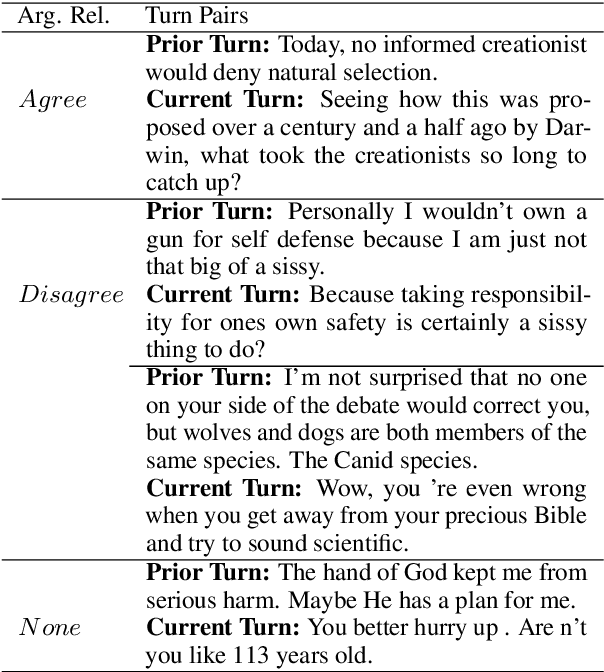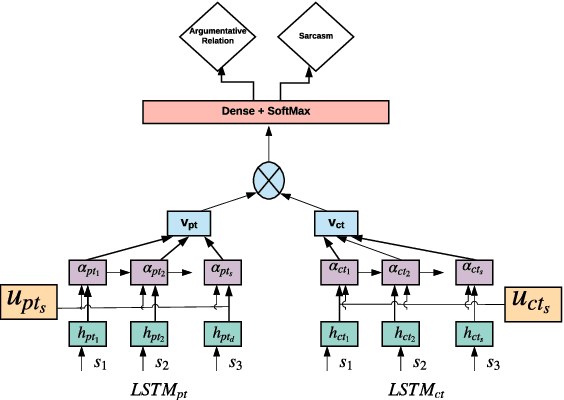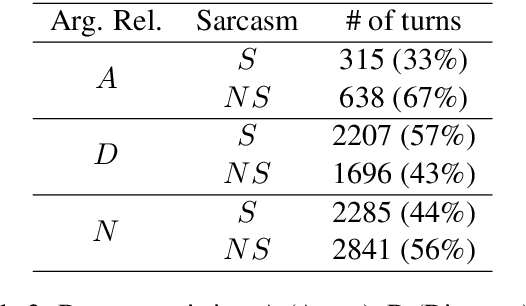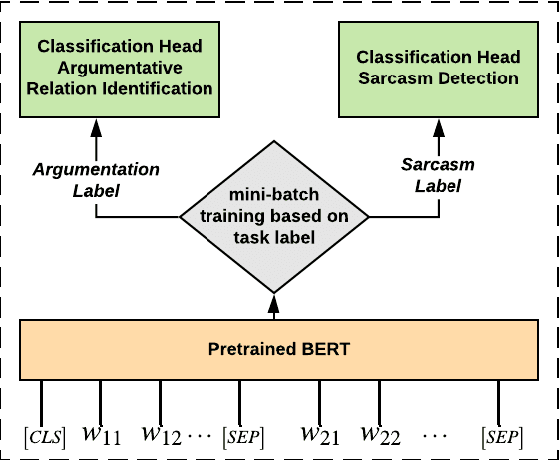"Laughing at you or with you": The Role of Sarcasm in Shaping the Disagreement Space
Paper and Code
Jan 26, 2021



Detecting arguments in online interactions is useful to understand how conflicts arise and get resolved. Users often use figurative language, such as sarcasm, either as persuasive devices or to attack the opponent by an ad hominem argument. To further our understanding of the role of sarcasm in shaping the disagreement space, we present a thorough experimental setup using a corpus annotated with both argumentative moves (agree/disagree) and sarcasm. We exploit joint modeling in terms of (a) applying discrete features that are useful in detecting sarcasm to the task of argumentative relation classification (agree/disagree/none), and (b) multitask learning for argumentative relation classification and sarcasm detection using deep learning architectures (e.g., dual Long Short-Term Memory (LSTM) with hierarchical attention and Transformer-based architectures). We demonstrate that modeling sarcasm improves the argumentative relation classification task (agree/disagree/none) in all setups.
 Add to Chrome
Add to Chrome Add to Firefox
Add to Firefox Add to Edge
Add to Edge